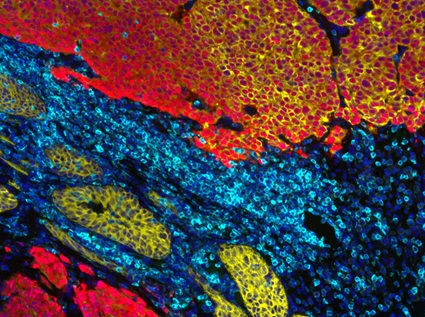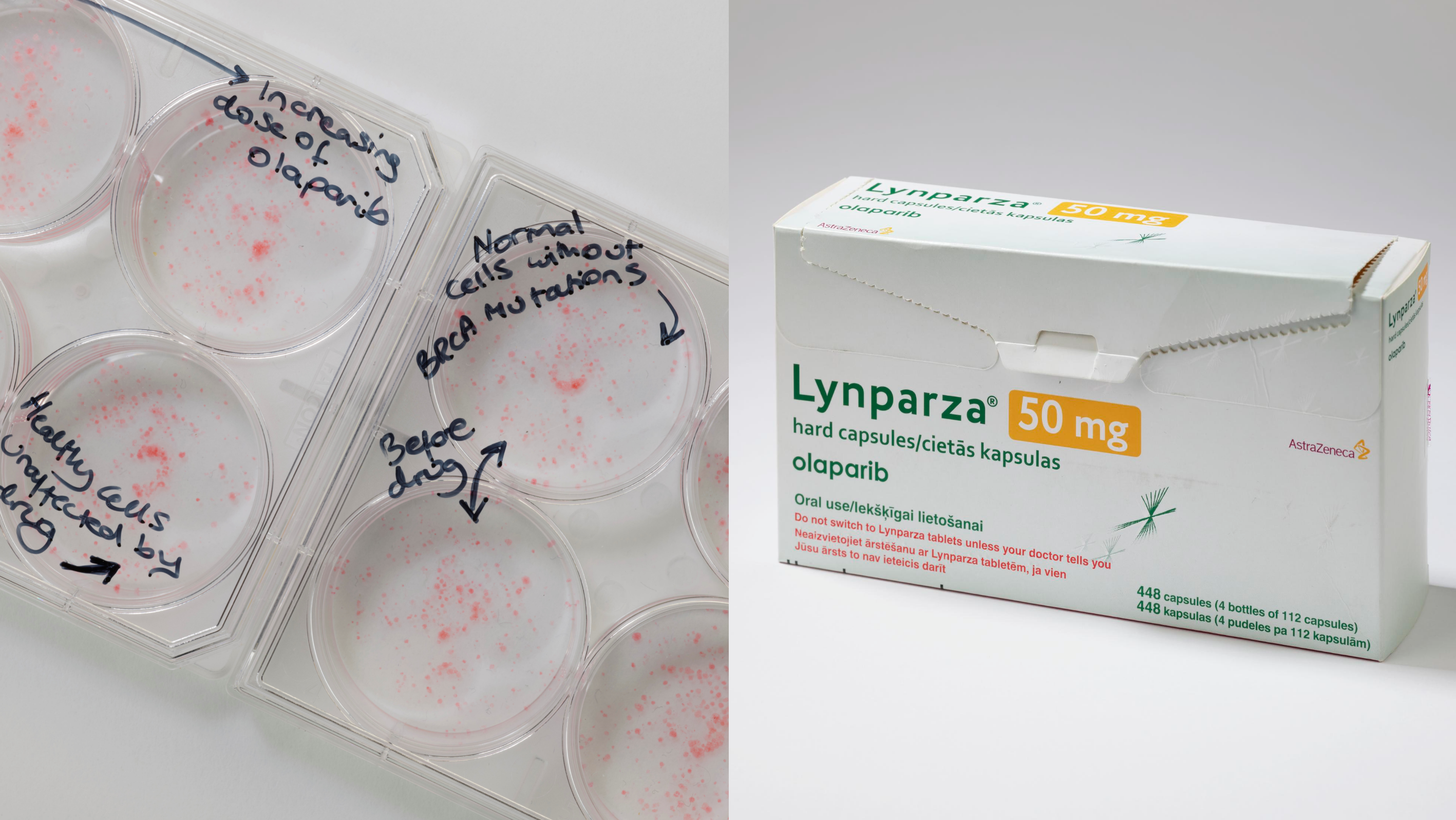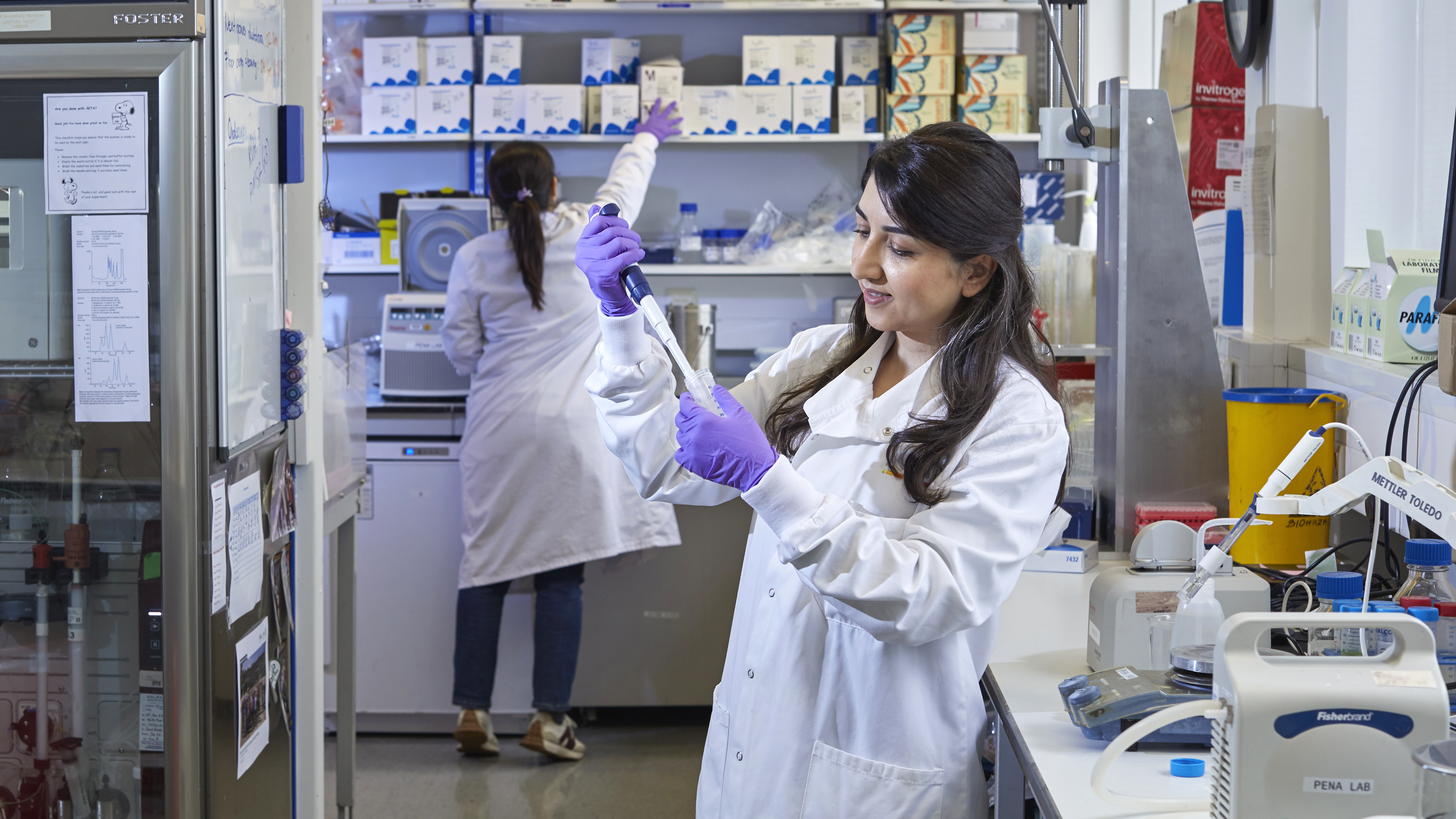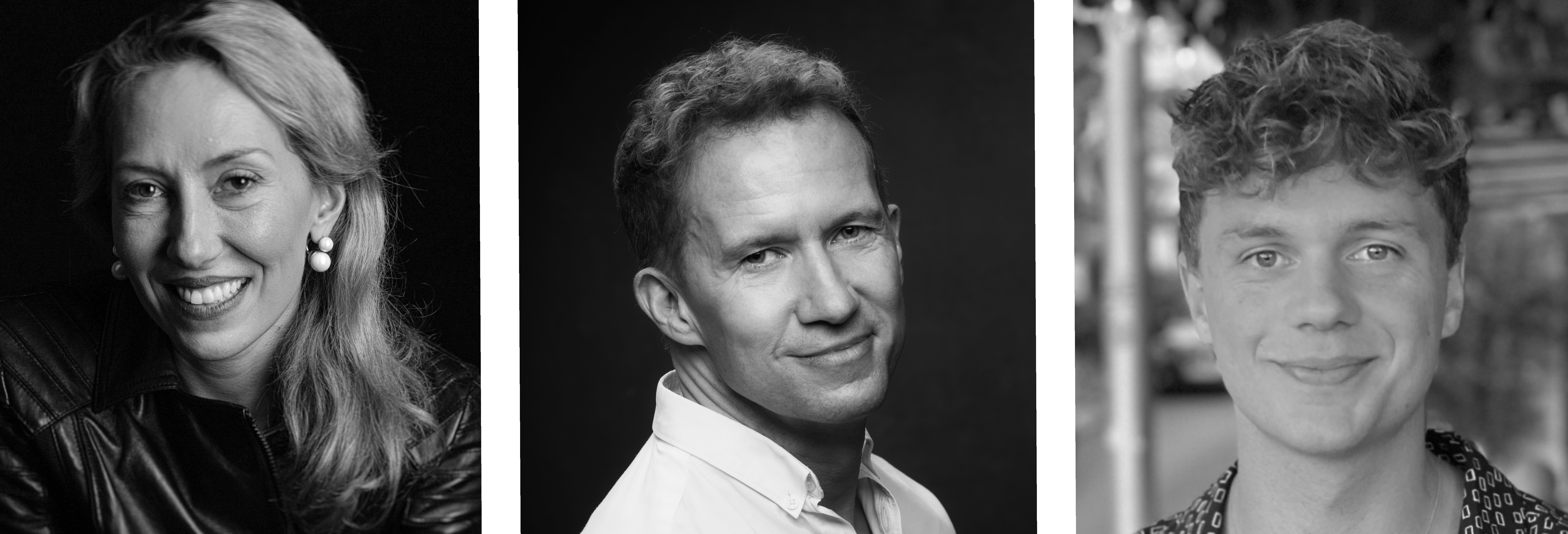Paediatric Solid Tumour Biology and Therapeutics Group
Professor Louis Chesler’s group is investigating the genetic causes for the childhood cancers, neuroblastoma, medulloblastoma and rhabdomyosarcoma.
Research, projects and publications in this group
Our group's aim is to improve the treatment and survival of children with neuroblastoma, medulloblastoma and rhabdomyosarcoma.
The goal of our laboratory is to improve the treatment and survival of children with neuroblastoma, medulloblastoma and rhabdomyosarcoma, three paediatric solid tumours in which high-risk patient cohorts can be defined by alterations in a single oncogene. We focus on the role of the MYCN oncogene, since aberrant expression of MYCNis very significantly associated with high-risk in all three diseases and implies that they may have a common cell-of-origin.
Elucidating the molecular signalling pathways that control expression of the MYCN oncoprotein and targeting these pathways with novel therapeutics is a major goal of the laboratory. We use a variety of innovative preclinical drug development platforms for this purpose.
Technologically, we focus on genetically engineered cancer models incorporating novel imaging (optical and fluorescent) modalities that can be used as markers to monitor disease progression and therapeutic response.
Our group has several key objectives:
- Mechanistically dissect the role of the MYCN oncogene, and other key oncogenic driver genes in poor-outcome paediatric solid tumours (neuroblastoma, medulloblastoma, rhabdomyosarcoma).
- Develop novel therapeutics targeting MYCN oncoproteins and other key oncogenic drivers
- Develop improved genetic cancer models dually useful for studies of oncogenesis and preclinical development of novel therapeutics.
- Use such models to develop and functionally validate optical imaging modalities useful as surrogate markers of tumour progression in paediatric cancer.
Professor Louis Chesler
Clinical Senior Lecturer/Group Leader:
Paediatric Solid Tumour Biology and Therapeutics.tmb-propic-md.jpg?Culture=en&sfvrsn=c25d2b2f_9)
Professor Louis Chesler is working to understand the biology of children’s cancers and use that information to discover and develop new personalised approaches to cancer treatment. His work focuses on improving the understanding of the role of the MYCN oncogene.
Researchers in this group
 .
.
I obtained an MSci in Biochemistry from the University of Glasgow in 2018. In October 2018 I joined the labs of Dr Michael Hubank and Professor Andrea Sottoriva to investigate the use of liquid biopsy to monitor clonal frequency and emergence of resistance mutations in paediatric cancers.
Professor Louis Chesler's group have written 112 publications
Most recent new publication 11/2024
See all their publicationsVacancies in this group
Working in this group
Head of Biology and Director, Centre for Target Validation (Group Leader)
Under the leadership of Dr Olivia Rossanese, we are seeking to appoint a Team Leader to join The Centre for Cancer Drug Discovery (CCDD) as The Head of Biology and Director of the Centre for Target Validation. Key Requirements The successful candidate must have in-depth knowledge and recent experience in an area of cancer biology relevant to oncology drug discovery. Leadership experience of drug discovery within, or in collaboration with, the pharmaceutical or biotechnology industry as evidenced by publication and/or successful commercial projects. Along with completing the online application form, you will be asked to attach the following documents and failure to do so will mean your application cannot be considered on this occasion: · Full CV · Lists of major publications, achievements, research grants, distinctions. · A PDF of a maximum of five key publications, or other research outputs (e.g. patents) that best demonstrate previous productivity · You must also complete the personal statement section of the application form in the format of a covering letter including the names and contact details of three academic referees Department/Directorate Information: The Division of Cancer Therapeutic's mission is to develop personalised medicines by translating information from the cancer genome and cancer biology into drugs for patient benefit. We implement innovative drug discovery technologies, discover novel mechanism-based drugs, and develop these as rapidly as possible from the laboratory through to hypothesis-testing early clinical trials We encourage all applicants to access the job pack attached for more detailed information regarding this role. For an informal discussion regarding the role, please contact Dr Olivia Rossanese, Email [email protected]
Human Resources Adviser
We currently have an exciting opportunity for a self-motivated and experienced HR Adviser to join our HR Operations team. Providing dedicated partnering with client departments, you’ll work closely with line managers to provide proactive and pragmatic advice and guidance on all aspects of people management, taking ownership of a busy employee relations caseload. You will also be responsible for supervising the work of our HR Administrative Team to ensure our monthly payroll input is submitted accurately and on time. You will work closely with other HR teams, including Recruitment, Systems and Information, and Learning and Organisational Development to ensure the provision of an effective, end to end HR service to Scientific and Professional Services teams across the ICR. Key Requirements You will have previous HR advisory experience, as well as a sound experience of managing employee relations cases end-to-end. You’ll need to be highly computer-literate, and have excellent attention to detail, with strong organisational and prioritisation skills to deliver effectively within a fast-paced environment. You will also have first-rate customer service skills to build and maintain collaborative relationships with colleagues across the organisation. Previous line management experience, and of managing small scale team restructures, including knowledge and understanding of TUPE processes would be a distinct advantage. Human Resources Directorate We know that talented, brilliant, passionate people lie at the heart of the ICR. That’s why we provide the policies, procedures, systems and people management infrastructure to recruit, retain, motivate and develop our people to achieve their full potential. We offer both operational and strategic support to teams across the ICR. We are organised across four main functions: HR Operations Learning and Organisational Development Pensions Reward, Information and Systems The ICR’s future success depends on recruiting the very best people with the very best skills and our HR strategy ensures that we have the organisational capacity and capability to deliver this. We encourage all applicants to access the job description pack attached for more detailed information regarding this role. For an informal discussion regarding the Sutton based role, please contact Karen Grieff via email on [email protected].

Employee Story
Postdoctoral Training Fellow (scientific role) Dr Giulio Caravagna is a Postdoctoral Training Fellow at The Institute of Cancer Research, working in Professor Andrea Sottoriva's Evolutionary Genomics and Modelling team, and jointly supervised by Professor Louis Chesler, Professor of Paediatric Solid Tumour Therapeutics.
Industrial partnership opportunities with this group
Opportunity: A novel test for predicting future cancer risk in patients with inflammatory bowel disease
Commissioner: Professor Trevor Graham



